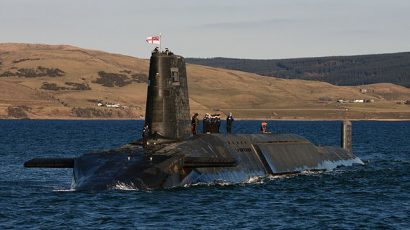Search results for
Small groups, dangerous technology: Can they be controlled?
A review of The Future of Violence
One way to fight radiological terrorism: alternative technology
Permanently reducing the threat posed by radiological sources will require minimizing and then eliminating their use altogether, transitioning to alternative technologies and practices.
The neuroweapons threat
It’s time for the nations of the world to start closing legal and ethical gaps—and taking proper security precautions—if they hope to control the neuroweapons threat.
Ethics on the near-future battlefield
From deciding which soldiers to enhance, to figuring out which enemies to disable, tomorrow’s military leaders will face a host of thorny moral dilemmas.
Five minutes is too close
A careful review of threats leads the Bulletin's Science and Security Board to conclude that the risk of civilization-threatening technological catastrophe remains high, and that the hands of the Doomsday Clock should therefore remain at five minutes to midnight.
How genetic editing became a national security threat
Genetic editing techniques like Crispr have made it possible to rapidly and irreversibly alter plants, animals, and even humans, posing a range of threats from accidental releases to biological attacks.
Ebola: A slow-motion atomic bomb
The Ebola outbreak is by no means under control. To reduce the transmission rate sufficiently to end the epidemic requires steps toward earlier diagnosis, followed by rapid isolation and treatment.
A Crispr future
The revolutionary gene-editing technique known as Crispr-Cas9 has the potential to change the world as we know it, which is why we need to oversee this technology with extreme caution.
Britain’s Trident, and the need to support nuclear personnel
William McNeilly’s revelations about the Trident submarine program highlight the need to support nuclear personnel—even if disarmament is the ultimate goal
Five assessments of the Fukushima disaster
A survey of books on the catastrophe at the Fukushima Daiichi nuclear power plant, three years after the earthquake and tsunami known collectively as 3/11.
Emerging tech in 2016
It’s easy to see the existential threat posed by nuclear weapons or global warming. But do any new technologies present the same kind of danger? That’s one question we’ve tried to address this year with our expanded coverage of things like artificial intelligence, cyber security, and automated warfighting.
The cyber threat in outer space
Satellites form the exoskeleton of the world’s critical infrastructure—and they’re seriously vulnerable to cyber attacks.
Interview: Iranian Deputy Foreign Minister Majid Ravanchi
A discussion of the state of play in the apparent final days of the Iranian nuclear negotiations and the stumbling blocks remaining on the path toward a final deal
Cyberwarfare ethics, or how Facebook could accidentally make its engineers into targets
If they participate in military cyberoperations—intentionally or not—could employees at Facebook, Google, Apple, Microsoft, and many other tech firms be considered “civilians directly participating in hostilities” and therefore legitimate targets of war?
US killer robot policy: Full speed ahead
The Defense Department's policy for autonomy in weapon systems may appear to reflect caution, but it allows the Pentagon to fund, test, buy, and use technology that could target and kill by machine decision.
It is 30 seconds closer to midnight
The full text of the Bulletin Science and Security Board 2017 Doomsday Clock statement, which moved the Clock to two and a half minutes to midnight.
Can the bioweapons convention survive Crispr?
Members of the Biological Weapons Convention will probably not change the treaty to accommodate for advances in genetic editing. But there is still plenty they can do to make sure Crispr and other new biotechnologies are used safely and peacefully.
The missile impasse
Why sanctions against Iran's missile program have turned into a major sticking point in the Vienna nuclear negotiations







